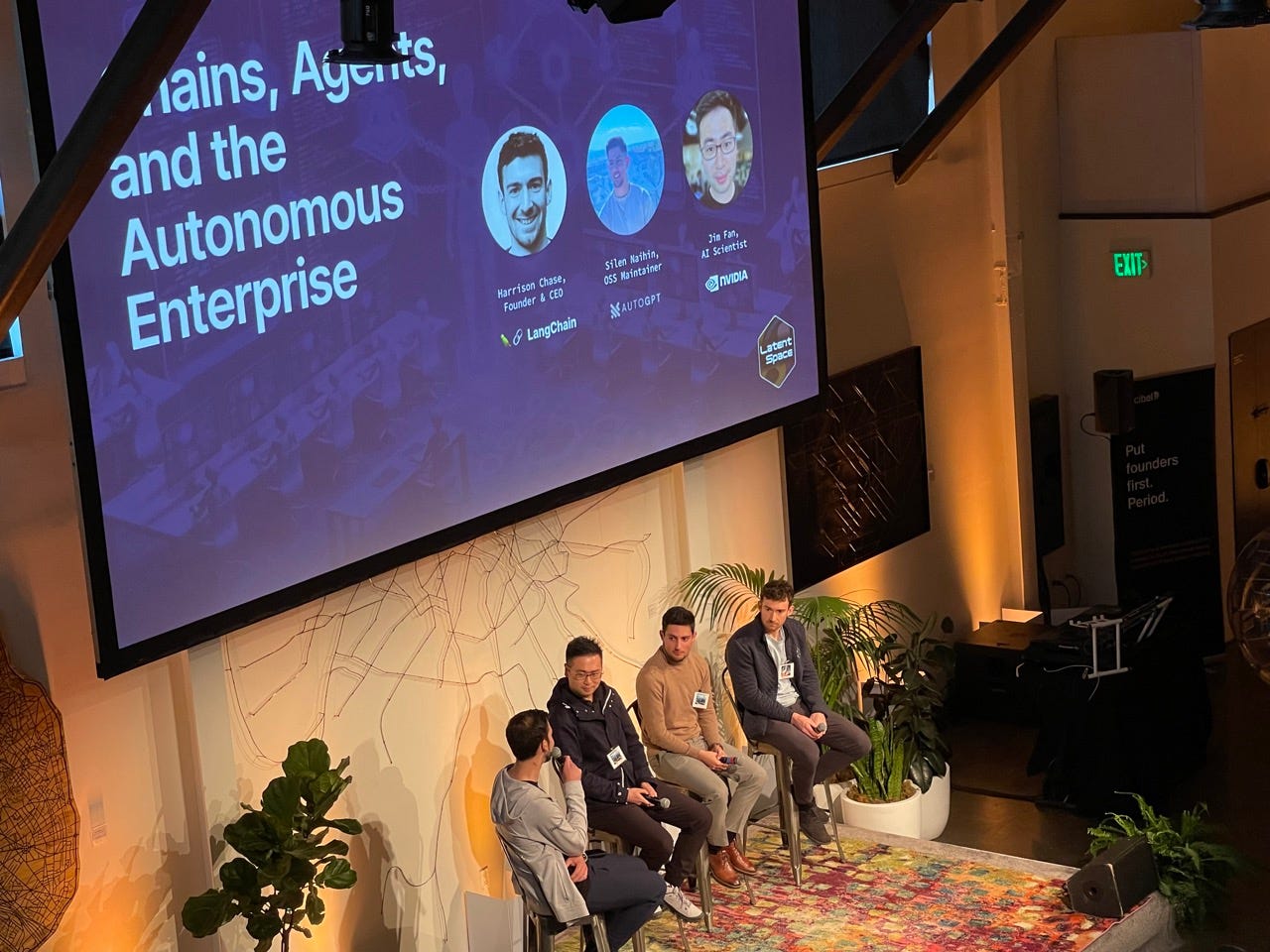Scenius
As I’ve been visiting the AI Pioneers Summit today and seeing the high caliber of people on the stage, representing GitHub Copilot, Salesforce AI, Walmart, LlamaIndex, Langchain, Cloudflare, Mosaic, Replit, Nvidia, AutoGPT (and so on), I’m reflecting about the powerful network effects of San Francisco has and how all these companies are neighbors in the same town.
Brian Eno introduced the concept of "scenius" to describe the collective intelligence and creativity of a cultural scene or group. The term combines "scene" and "genius" to highlight a community's power in fostering innovation and excellence. Scenius is the idea that genius doesn't just exist in individuals, but can also arise from the collaborative efforts of a group.
There are several factors that can help to nurture a scenius, according to Kevin Kelly:
Mutual appreciation: Recognizing and valuing the contributions of each member of the group.
Rapid exchange of tools and techniques: Sharing knowledge and skills to help everyone improve.
Network effects of success: Celebrating and building on the successes of the group as a whole.
Local tolerance for novelties: Being open to new and different ideas.
Some examples of scenius include:
Xerox PARC: A research and development company that has produced many innovative technologies.
Paypal Mafia: A group of former Paypal employees who have gone on to found successful companies like Tesla and LinkedIn.
Silicon Valley: A hub for technology and innovation in California.
YCombinator: A startup accelerator that has helped launch successful companies like Dropbox and Airbnb.
Burning Man: An annual event that fosters creativity and community.
To create a scenius, it's important to find the right balance between openness and structure. A too open space can lack focus, while too much structure can stifle creativity. It's also important to embrace a certain amount of inefficiency and wastefulness, as these can be necessary for the group's vitality.

